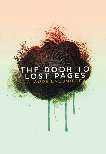Comic books, back in the day, targeted the young, particularly boys and young adult (or perpetually young) males. Although there were many truly comical comics no spookier than Casper the Friendly Ghost, from the very beginning the medium seemed destined to favour the creepy, the disturbing, and the faintly subversive: things that catered more to those with a Y chromosome. The image of a boy curled up with a copy of Tales from the Crypt or some spin-off will forever be associated with classic comic books. (Even some superhero lineages – The Dark Knight, quickly comes to mind – hail from the murkier, noir, side of town.)
While the comic books of yore still exist (albeit with more adult collectors than ten-year-olds buying them), their latest incarnation is in a more substantial, “legitimate” form: the graphic novel. These mixed-media publications can also come in a variety of themes and forms, but basic black prevails. It reflects a seemingly bottomless hunger for exploring the scary and forbidden: loss of community or personal identity, loneliness, disease, sex, and death. (Witness the recent vampire craze.)

The Door To Lost Pages
Claude Lalumière
ChiZine Publications
$13.95
paper
200pp
9781926851129
This follow-up to his well-received short-story collection, Objects of Worship, continues in the dark fantasy-horror vein. Door features supernatural beings and wild situations, characters with overactive imaginations verging on madness, edgy sexual imagery, and an empty-urban setting. The word “lost” is key: lost knowledge, lost children, lost adults, and lost directions. The bleak city backdrop offers no solace for anyone or anything. Appropriately, the story’s progress resembles a delirium, a sense of being wondrously disoriented. The nesting of dream within dream brings to mind Robert Irwin’s The Arabian Nightmare.
Door weaves the journeys of several human characters – Aydee, Lucas, and Sandra – against a fantastical background of altered states of consciousness (and even states of identity), which seem to involve visits to a world of large, menacing creatures – part myth, part machine, part human. The characters are all young, free of family ties to some extent, and desperately trying to find somewhere to belong. First Lucas and then Aydee go to the Lost Pages bookstore and find refuge amongst the arcane, the esoteric, the abandoned aspects of human knowledge. They eventually find each other and Sandra, too, all imbedded in a strange world that might very well have leapt from one of the books.
The odd and the mysterious are not only familiar tropes of fantasy, they parallel the lost/edgy/undefined feelings of the young characters. Lost knowledge equals lost opportunity. Knowledge that defies convention is like the average youth without a set path or a purpose, who resists fitting in just to be wanted:
Lost Pages wasn’t the only bookshop I frequented, but the books I found on its shelves were ..unique. I never saw any of these books anywhere else. Bizarre bestiaries. Dictionaries of dead, obscure languages. Maps to lands that may never have been. Essays on religions with unfamiliar names. Obscure mythologies. Accounts of wars no history teacher had ever mentioned. Such were the wares of the bookshop that fed my teenage dreams.
A Montreal Gazette books columnist and former bookstore owner, Lalumière is clearly comfortable with the trickier elements of horror and erotica, and knows when to step back at the right moment. Although the Lost Pages world is pure fantasy, it is no fantasy world. He may have found the most compassionate way to depict people on the edge of society, and that is to paint them as being lost to themselves – and to everyone else. mRb






0 Comments